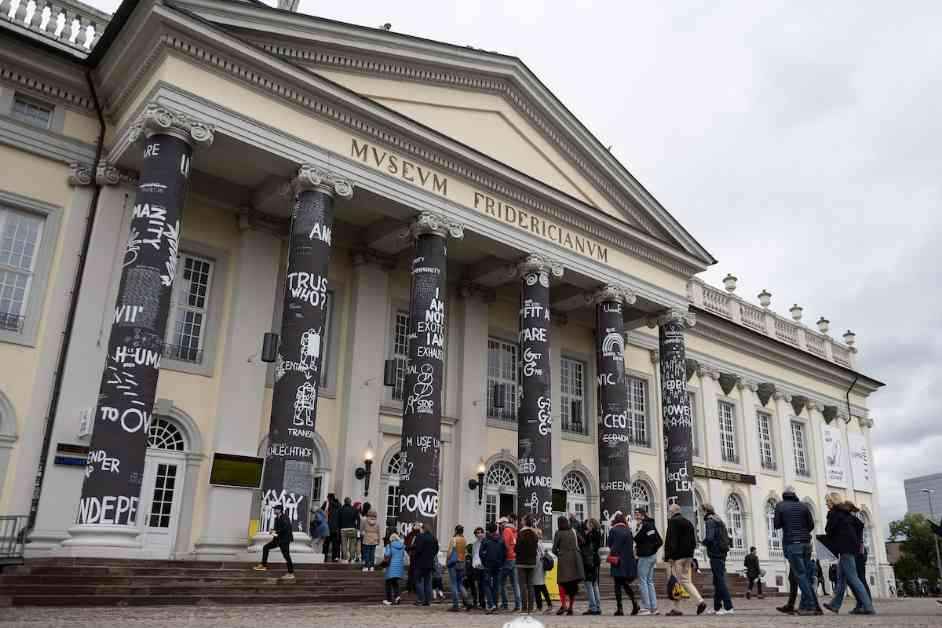Documenta’s New Code of Conduct: Addressing Antisemitism in the Art World
In a recent turn of events, Documenta, the renowned German art exhibition, has unveiled a new code of conduct aimed at addressing the aftermath of an antisemitism controversy that marred its 2022 edition. The upcoming 2027 edition, set to be curated by Naomi Beckwith, is poised to make a statement by emphasizing tolerance and respect for human dignity while vehemently opposing antisemitism, racism, and all forms of group-related hatred.
Adopting the IHRA Definition of Antisemitism
At the heart of Documenta’s new code of conduct lies the adoption of the International Holocaust Remembrance Alliance (IHRA) definition of antisemitism. This definition, which outlines various manifestations of discrimination against Jews, includes a provision that has sparked debate regarding the State of Israel and its right to self-determination. Specifically, the IHRA definition condemns any denial of the Jewish people’s right to self-determination, including labeling the existence of Israel as a racist endeavor.
While some have applauded Documenta’s commitment to combatting antisemitism through the IHRA definition, others have raised concerns about potential censorship of artists with pro-Palestine views. The controversial nature of this definition has been a point of contention within the art world and beyond, reflecting deep-seated divisions on the issue.
Reception and Criticism
The reception of Documenta’s new code of conduct has been met with a range of reactions across Germany. Criticism has been leveled at the perceived ambiguity in the language of the code, with some questioning the implications for artistic freedom and expression. Saskia Trebing, writing for Monopol, highlighted concerns about potential conflicts between artistic and organizational management, noting instances where artworks were removed from past editions of Documenta.
Meanwhile, voices of dissent have emerged, with artist Adam Broomberg questioning the influence of Zionism on artistic boundaries. The intersection of politics, ideology, and art has created a complex landscape for Documenta and its stakeholders, prompting a deeper examination of the role of institutions in defining and enforcing ethical guidelines.
In a bid to foster dialogue and engagement, Documenta also announced the formation of a scientific advisory committee tasked with navigating current social and academic discourses within the organization. Comprising esteemed figures such as Tel Aviv Museum of Art director Tania Coen-Uzziell and scholar Thomas Sparr, the committee signals a commitment to exploring multifaceted perspectives on contentious issues like antisemitism and cultural representation.
As Documenta prepares for its 2027 edition under the stewardship of Naomi Beckwith, the art world awaits with bated breath to see how these developments will shape the future of one of Germany’s most iconic cultural events. With tensions running high and debates raging on the intersection of art and politics, Documenta’s new code of conduct stands as a testament to the enduring power of art to provoke, challenge, and inspire meaningful conversations.
The evolving landscape of art and ethics continues to unfold, with Documenta at the forefront of navigating these complex waters. As artists, critics, and audiences grapple with the implications of codes of conduct and definitions of antisemitism, the broader conversation around freedom of expression and cultural responsibility gains new urgency and relevance. In an ever-changing world where art has the potential to both unite and divide, Documenta’s bold stance signals a commitment to fostering dialogue, understanding, and inclusivity in the pursuit of artistic excellence and social progress.












